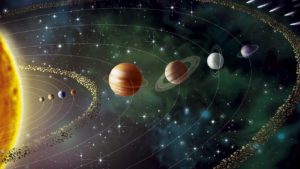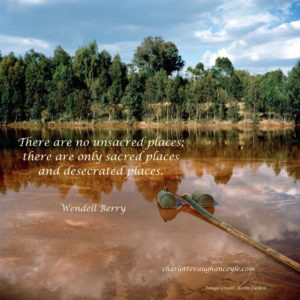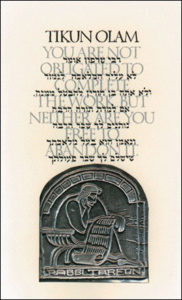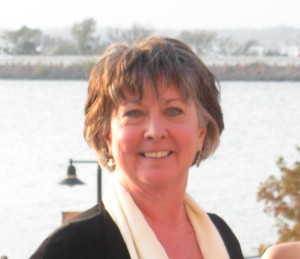Remember Copernicus? In 1543, he published his theory of a heliocentric solar system, positing that the earth was not, in fact, the center of the universe. Rather against all conventional wisdom, Copernicus insisted the sun was at the center while the earth, just like all the other planets, rotated in its ordered  sphere.
sphere.
Not surprisingly, his work was highly controversial. Not only by other scientists but also by the religious leaders of his day. Both the Roman Catholic Church and the Protestant Reformers rejected the idea that the earth was not the center of the universe.
Fast forward to 2017 and see the dramatic difference in our conventional wisdom about space, and watch how even what we think we know keeps shifting as new planets continue to be discovered across the galaxy. Quite recently, we earthlings pondered the significance of seven new earth-like planets that have been found orbiting a nearby star.
So now we know, we are not the center of the universe.
So why do we keep acting as though we are?
In the past several years, numerous scientists have been using the term “Anthropocene” to name what they consider to be a new geologic era. It’s a startling label because it points to us humans as the primary catalyst for many of the events occurring in nature. This scientific classification claims that human influence – from the industrial revolution of the 1800’s through the dawning of the atomic age in the 1950’s to the disruption and pollution of our current day – is evidence that something significant has shifted in the natural balance. Humans, anthropos, have developed the power to change the world and our actions are doing just that.
I think we humans must be anthropocentric by default. Too many of us behave as if we are the climax of creation, the epitome of nature. The human race (and especially those of us living in the West) act as if humans are the ones for whom all nature exists. The world is for our comfort, our convenience, our use. We act as if whatever is, is at our disposal for us to take and plunder as we please.
In the past, in the all ages before the current era – even with a anthropocentric belief system – humans didn’t have the technological power we have today. The proposed naming of this Antropocene Era recognizes that our default human self-centeredness is finally able to cause planetary shifts that are creating a new era.
In the first chapter of the Bible, in the book of Genesis, the story lyrically describes the beginning of all things. The separation of dark and light, of earth and sea, of night and day. The origins planets and stars; of sea creatures and air creatures and land creatures. It truly is poetry at its best. The story poetically describes a cosmos where all is connected and interconnected. Each part is assigned its unique part and everything is interdependent upon the whole.
Genesis is story – not history, not science. It is story in the best sense of that word. Story that tells us something true about who we are and where we come from.
The two different stories from the first two chapters of Genesis are lovely beginnings. But – as is the way of great stories – it quickly devolves into tragedy. No longer are the humans content to be one essential part of the whole universe. Humans begin to think of themselves as the center of the universe. In biblical terms, this is called idolatry.
Within my own religious tradition, Christianity has lived in a love-hate relationship with nature. Early on, some thinkers preached an inherent dualism between spirit and body, between soul and flesh, between heaven and earth. The notion is deeply flawed but it has infiltrated Christian thinking even to the present day. This way of thinking exacerbated the human tendency to self-centeredness: creating and condoning the plundering of the earth.
But there has always been an alternative vision within the Christian community. Wisdom teachers have long preached the unity of all things; have shown us how we are all interconnected; have reminded us that all creation – emerging from the mind and the heart of the Creator – is holy.  Non-Christian and pagan spiritualities envision this inherent wholeness and sacredness as well. It is a vision that can save the world.
Non-Christian and pagan spiritualities envision this inherent wholeness and sacredness as well. It is a vision that can save the world.
The sooner more and more of us begin to live into this vision of interconnectedness and interdependence, the sooner we can nudge a shift back to nature’s natural balance. If ever there was a critical time for a groundswell of fresh efforts by each and every one of us, now is the time. If ever there was a critical time for each and every one of us to find our voice; to call and write and challenge the willful blindness of some of our lawmakers, now is the time.
Awareness is the first step.
Humans are not the center of the universe and earth does not exist for our plundering. Rather the earth is the precious home we share with countless other creatures beloved by the Creator. Each time we do damage to a part, we do damage to the whole, ourselves included.
Denying the human influences that are changing the climate and the environment is a sinful arrogance that Christians and all religious peoples should forsake. In the biblical tradition, acknowledging our participation in this negligence and damage is called repentance. Whatever word you might use from your own tradition, opening our minds and hearts and really seeing the realities all around us is the first step.
Action is the second step.
In the Genesis stories, Creator endowed the humans with particular responsibility to care for creation; to steward and manage; to serve and protect. Our Jewish cousins call it “repair of the world,” tikum olam. Repair, restoration and rehabilitation must always follow repentance.
I am ever so grateful for the tireless efforts of activists – religious and non-religious – who sacrifice privilege and comfort for the hard work of intervening when damage has been done. Saving the whales, saving the trees, protecting a ir and water and land…where would the rest of us be if it weren’t for these heroes?
ir and water and land…where would the rest of us be if it weren’t for these heroes?
But this is ours to do; not just for a few heroes. This is for all of us together: our charge, our work, our sacred duty and our high privilege.
Let’s get to it.
For my Evangelical Christian friends…
The Evangelical Environmental Network includes care of the earth within its pro-life commitment
For my religious friends of various faith traditions…
Here is a description of numerous faith based environmental organizations
For my non-religious friends…
PBS lists America’s 20 largest environmental organizations
 Charlotte Vaughan Coyle lives in Paris TX and blogs about intersections of faith, culture and politics on her website and Intersections Facebook page. She is national secretary for Coffee Party USA and contributes regularly to the Join the Coffee Party Movement Facebook page.
Charlotte Vaughan Coyle lives in Paris TX and blogs about intersections of faith, culture and politics on her website and Intersections Facebook page. She is national secretary for Coffee Party USA and contributes regularly to the Join the Coffee Party Movement Facebook page.
Charlotte is an ordained minister within the Christian Church (Disciples of Christ) and also blogs about Scripture from a progressive Christian approach in her Living in The Story Musings.
Excellent, timely and appropriate!